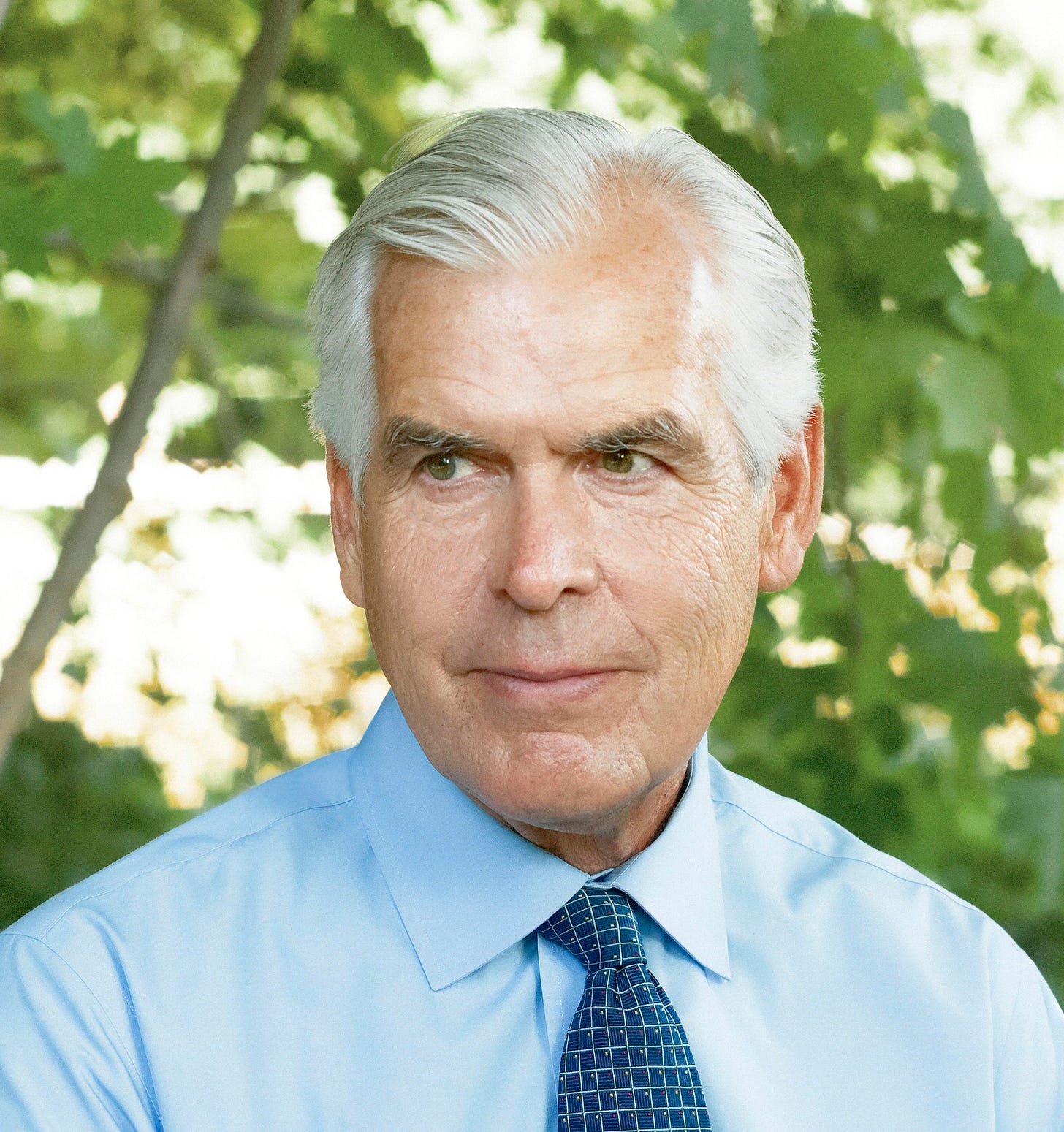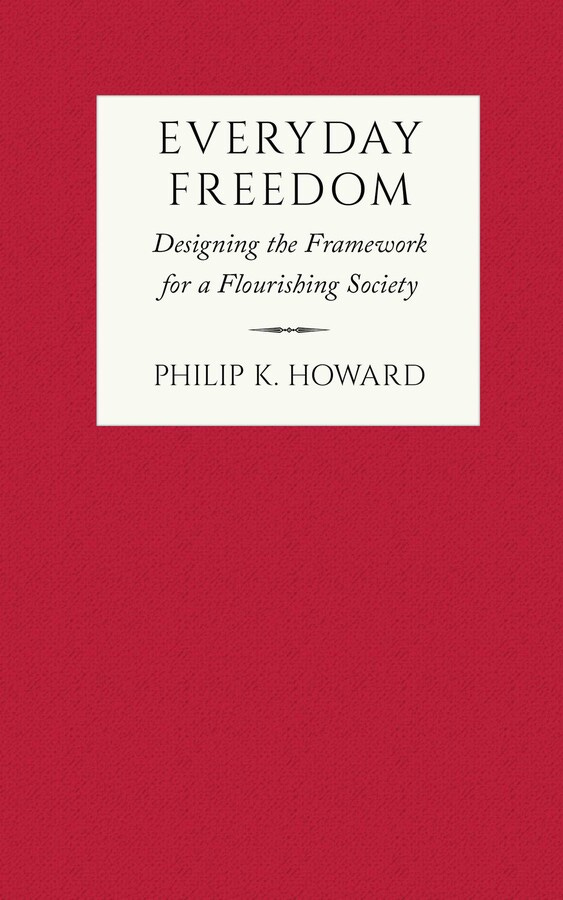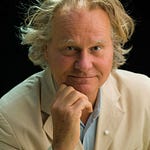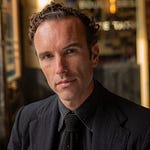Philip K Howard is a leading reformer of American law and government. He combines thought and action: A prolific, best-selling writer and frequent commentator who founded the non-partisan group, Common Good.
He is the author of an eagerly awaited new book, Everyday Freedom: Designing the Framework for a Flourishing Society.
In this episode of the Serve to Lead podcast, Howard discusses the urgent need and prospects for change, in time for vigorous and informed citizen engagement in the pivotal 2024 national elections. In additional to national issues, he offers informed perspectives on state and local developments, including the vast reach of the California state budget.
Publisher’s Summary
There’s a glaring vacuum in the 2024 political debate—No party or candidate offers a governing vision that deals with the root causes of alienation and failure. Something basic is missing in our culture. Americans know it. Nothing much works as it should. Simple daily choices seem impossible, or fraught with peril. In the workplace, we walk on eggshells. Big projects—say, modernizing infrastructure—get stalled in years of review. Endemic social problems such as homelessness become, well, more endemic.
Everyday Freedom pinpoints the source of powerlessness that is fraying American culture and causing public failure, and offers a bold vision of simpler governing frameworks to re-empower Americans in their daily choices. “Everyday Freedom shows us how to break out of the spiral of decreasing trust, confidence, and capability,” social psychologist Jonathan Haidt concludes, “and re-invigorate our institutions, our governments, and ourselves.”
Everyday Freedom diagnoses our collective futility as resulting from a deliberate change in governing philosophy: The assault on authority after the 1960s, aimed at enhancing freedom, instead created a plague of powerlessness. The teacher in the classroom, the principal in a school, the nurse in the hospital, the official in Washington, the parent on a field trip, the head of a local charity or church…all have their hands tied. Things don’t work, and Americans have lost the freedom to be themselves. That’s the main reason America is in a downward spiral of alienation and extremism.
Who has a vision to revive hope and action? Not political leaders, who are picking the scab of resentment. Social media gets rich selling distrust. Stop the Steal! Defund the Police!
Everyday Freedom, in the tradition of Thomas Paine’s Common Sense, offers a radical vision for change: Re-empower Americans in their everyday choices. The massive legal structures erected since the 1960s were based on flawed notions that human judgment could be replaced by elaborate dictates. Area by area, these failed structures must be replaced with simpler frameworks activated by human responsibility and accountability. Nothing will work sensibly until Americans are free to draw on their skills, intuitions and values when confronting daily challenges. This is the only cure to alienation. This is also the only way to deliver good government.
Philip Howard’s understanding of the essential role of human agency has been embraced by some of America’s leading economists, jurists, social psychologists and philosophers.
Critical Acclaim
In "Everyday Freedom, Howard cites the buildup since the 1960s of laws and rules that were intended to ensure procedural fairness, but in practice have chipped away at officials' authority to do their jobs....He offers many examples:....To his list, I'd add larger systemic failures that leave frustrated citizens wondering whether they're stuck with a 'can't do' government forever.'" — Will Marshall, Founder and President, Progressive Policy Institute, writing in The Hill
Everyday Freedom "has some thoughtful answers....It's about the circumstances that have turned so many Americans against their democratically elected governments." — Mary Williams Walsh, News Items
"This is very much a book that needed to be written....[Everyday Freedom] is one of the books that comes closest to diagnosing what is wrong with our country." — Tyler Cowen, Marginal Revolution
"Everyday Freedom offers a master class in consequences of lost agency. Agency not only promotes freedom, but its deprivation through policies and regulations saps civil vitality. Politicians' inattentiveness to the problem stokes alienation and populism. Re-empowering individuals can produce a can-do, let 'er rip economy of opportunity and flourishing. We've corrected such 'system failure' before, and Howard provides a roadmap for doing so again. The book is a must read for any student of what ails this society—that is, all of us." — Glenn Hubbard, Russell L. Carson Professor of Economics and Finance, Columbia University, and former chair, White House Council of Economic Advisers
"In this insightful book, Philip Howard shows why an economy where people can flourish requires a legal framework permitting individuals to use their judgment and initiative, and how this self-expression is a cornerstone of societal progress." — Edmund Phelps, recipient of the 2006 Nobel Prize in Economics, McVickar Professor Emeritus of Political Economy and Director of the Center on Capitalism and Society, Columbia University
"America is in a self-reinforcing spiral of decreasing trust, confidence, and capability. Philip Howard has been warning us about it for 15 years, and in Everyday Freedom he shows us how to break out of it and re-invigorate our institutions, our governments, and ourselves. This short, clear, passionate book shows how we can create an upward spiral of freedom, wisdom, and success." — Jonathan Haidt, Thomas Cooley Professor of Ethical Leadership, New York University—Stern School of Business, author of The Righteous Mind, co-author of The Coddling of the American Mind
"Everyday Freedom is the most powerful, incisive critique of modern governance we have seen in a generation. Howard's razor-sharp analysis cuts through legal complexity to reveal a clear path to American rejuvenation: simplifying the bureaucratic maze that binds our ingenuity. This is an urgent, necessary read for all who are committed to re-empowering individuals and restoring the vibrant spirit that defines our nation." — Jennifer Brick Murtazashvili, Founding Director of the Center for Governance and Markets and Professor at the Graduate School of Public and International Affairs, University of Pittsburgh
"Philip K. Howard's slim Everyday Freedom is a hefty addition to the literature of freedom. While debates rage over freedom of speech, Howard is concerned with freedom of doing. That is the freedom to use one's knowledge, experience, and intuition to act effectively in the circumstances at hand—in leading a classroom, patrolling a neighborhood, managing a business, fixing a bridge, helping a stranger. Human agency in such practical endeavors is being smothered because judges and bureaucrats are neglecting their own capacities for moral judgement. Howard recognizes that the problem is deeply embedded in modern culture. But he argues convincingly that the first, feasible step for restoring everyday freedom is for our institutions and their leaders to reassert their authority and accountability for the common good." — Christopher DeMuth, Distinguished Fellow, Simon Center for American Studies, Heritage Foundation, and former president, American Enterprise Institute
"Phillip Howard's powerful new book is a cri de coeur about the decay of 'everyday freedom' in America. Howard shows how the rights revolution of the 1960's designed to expand individual freedom by limiting institutional authority instead ushered in a daily regime of paralyzing red tape, sign-here forms, and rigid protocols that not only waste our time, but worse, deprive us of personal agency. Teachers hesitate to hug a hurt child, doctors order batteries of tests in cases where they know they're irrelevant adding to medical costs and crowding, civil projects that should take a few months drown in a sea of agency permits. Also lost in all of this is America's legendary can-do spirit and pragmatism, not to mention citizens' personal satisfaction in 'getting stuff done.' If you want to understand the sense of futility and mistrust that corrodes so much of American life these days, Everyday Freedom is essential reading. This is an important book." — Kay Hymowitz, William E. Simon Fellow, Manhattan Institute
"Philip K. Howard is astutely careful in his beautiful case for everyday freedom and the architecture of everyday freedom. His argument is at the core of today's grand debates about basic rights and responsibilities. This is an essential read that touches on major issues that deserve immediate action." — Paul C. Light, Paulette Goddard Professor of Public Service at NYU, and a Nonresident Senior Fellow at the Brookings Institution
"This book is a call to action for progressives and conservatives to develop a new legal framework within protected freedom. Philip Howard focuses on the values of self-reliance, individual responsibility, pragmatism and loyalty to the greater good, to restore trust in our modern society. He has written a groundbreaking and compelling case for reform, required reading in every civics course." — Peter Pazzaglini, Senior Scholar, Heyman Center for the Humanities, Columbia University
"Americans created a Constitution to 'secure the blessings of liberty to ourselves and our posterity.' But as Philip Howard shows, those blessings are increasingly burdened by erratic government, angry partisanship, and the corrosive cultural malaise that inevitably follows. Everyday Freedom is an eloquent and thoughtful call to reignite the American spirit by reinvigorating our constitutional and cultural institutions." — Adam J. White, Co-Director, C. Boyden Gray Center for the Study of the Administrative State at Scalia Law School, and Senior Fellow, American Enterprise Institute
"In Everyday Freedom, Philip Howard...rightly sees that in our efforts to eliminate human bias and error we have created new self-propagating barriers to efficiency and equity. As we stand at the brink of the Age of AI with its promises of algorithms that will replace human decision-making, this may be the most important book you read this year." — Philip Bobbitt, Herbert Wechsler Professor of Federal Jurisprudence, Columbia Law School
About Philip K Howard
Philip K. Howard is a leader of government and legal reform in America. He is Chair of Common Good and a bestselling author, and has advised both parties on needed reforms. In his book, Not Accountable (Rodin Books, 2023), he argued that public employee unions undermine democratic governance and should be unconstitutional.
Philip is the author of the bestseller The Death of Common Sense (Random House, 1995), The Collapse of the Common Good (Ballantine Books, 2002), Life Without Lawyers (W.W. Norton, 2009), The Rule of Nobody (W.W. Norton, 2014), and Try Common Sense (W.W. Norton, 2019). His commentaries are published frequently in major media outlets.
In 2002, Philip formed Common Good, a nonpartisan coalition dedicated to simplifying laws so that Americans can use common sense in daily choices. His 2010 TED Talk has been viewed by more than 750,000 people. His 2015 report, “Two Years, Not Ten Years,” exposed the economic and environmental costs of delayed infrastructure approvals, and its proposals have since been incorporated into federal law. Philip has appeared often on television and radio, including several times on Jon Stewart’s “The Daily Show.”
The son of a minister, Philip got his start working summers at the Oak Ridge National Laboratory for Nobel laureate Eugene Wigner. He has been active in public affairs his entire adult life. He is Senior Counsel at the law firm Covington & Burling, LLP. A graduate of Yale College and the University of Virginia Law School, Philip lives in Manhattan with his wife Alexandra. They have four children.
Image Credit | Author photo, Common Good, commongood.org.
















Share this post